第15章 LETTER III(1)
The S.S. Kin Kiang--First View of Canton--The Island of Shameen--England in Canton--The Tartar City--Drains and Barricades--Canton at Night--Street Picturesqueness--Ghastly Gifts--Oriental Enchantments--The Examination Hall S.S. "KIN KIANG," December 30.
You will remember that it is not very long since a piratical party of Chinese, shipping as steerage passengers on board one of these Hong Kong river steamers, massacred the officers and captured the boat. On board this great, white, deck-above-deck American steamer there is but one European passenger beside myself, but there are four hundred and fifty second-class passengers, Chinamen, with the exception of a few Parsees, all handsomely dressed, nearly all smoking, and sitting or lying over the saloon deck up to the saloon doors. In the steerage there are fifteen hundred Chinese steerage passengers, all men. The Chinese are a noisy people, their language is inharmonious, and the lower class male voices, at least, are harsh and coarse. The fifteen hundred men seem to be all shouting at once, and the din which comes up through the hatchways is fearful. This noisy mass of humanity is practically imprisoned below, for there is a heavy iron grating securely padlocked over each exit, and a European, "armed to the teeth," stands by each, ready to shoot the first man who attempts to force it. In this saloon there is a stand of six rifles with bayonets, and four revolvers, and, as we started, a man carefully took the sheaths off the bayonets, and loaded the firearms with ball cartridge.
Canton, January 1, 1879.--The Canton river for the ninety miles up here has nothing interesting about it. Soon after leaving Hong Kong the country becomes nearly a dead level, mainly rice-swamps varied by patches of bananas, with their great fronds torn to tatters by the prevailing strong breeze. A very high pagoda marks Whampoa, once a prosperous port, but now, like Macao, nearly deserted. An hour after disgorging three boat loads of Chinamen at Whampoa, we arrived at the beginning of Canton, but it took more than half an hour of cautious threading of our way among junks, sampans, house-boats, and slipper-boats, before we moored to the crowded and shabby wharf. If my expectations of Canton had been much raised they would certainly have been disappointed, for the city stands on a perfectly level site, and has no marked features within or around it except the broad and bridgeless tidal river which sweeps through it at a rapid rate. In the distance are the White-Cloud hills, which were painted softly in amethyst on a tender green sky, and nearer are some rocky hills, which are red at all hours of daylight. Boats and masts conceal the view of the city from the river to a great extent, but even when from a vantage ground it is seen spread out below, it is so densely packed, its streets are so narrow, and its open spaces so few, that one almost doubts whether the million and a half of people attributed to it are really crowded within the narrow area. From the river, and indeed from any point of view, Canton is less imposing even than Tokiyo. Few objects rise above the monotonous level, and the few are unimpressive.
There are two or three pagodas looking like shot towers. There is a double-towered Romish cathedral of great size, not yet finished. There is the "Nine-storied pagoda." But in truth the most prominent objects from the river are the "godowns" of the pawnbrokers, lofty, square towers of gray brick which dominate the city, play a very important part in its social economy, and are very far removed from those establishments with the trinity of gilded balls, which hide themselves shamefacedly away in our English by-streets. At one part of the riverside there are some substantial looking foreign houses among trees, on the site of the foreign factories of former days, but they and indeed all else are hidden by a crowd of boats, a town of boats, a floating suburb. Indeed, boats are my earliest and strongest impressions of what on my arrival I was hasty enough to think a mean city. It is not only along the sides of the broad Pearl river, but along the network of innumerable canals and creeks which communicate with it, that they are found.
These boats, the first marvel of a marvelous city, have come between me and my landing. When the steamer had disgorged her two thousand passengers, Mr. Mackrill Smith, whose guest I am, brought me in a bamboo chair, carried by two coolies, through a covered and crowded street of merchandise six feet wide, to Shameen, the island in the river on which the foreigners reside; most of the missionary community, however, living in the buildings on the site of the old factory farther down.